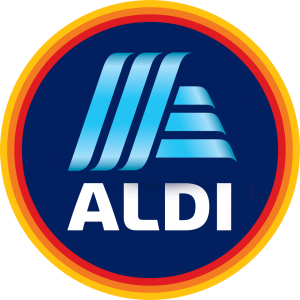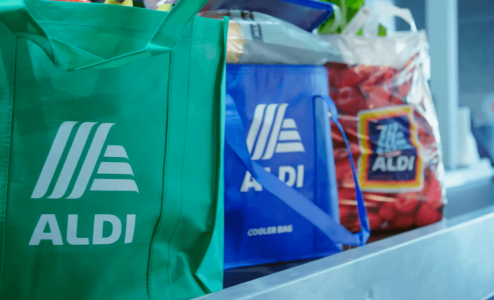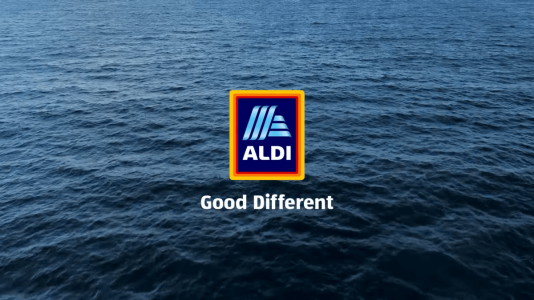This supermarket chain paid a whopping $270 million in taxes, and it's not Woolies or Coles
- Replies 9
We all love visiting our local supermarket to stock up on the essentials and maybe treat ourselves to a few luxuries here and there.
But did you know there's only one supermarket chain that paid a whopping $270 million in taxes to the Federal Government this past year?
It’s not Woolies, it’s not Coles… we're talking about ALDI.
Economist and author Jason Murphy recently got to musing about the German-born chain, whose Australian counterpart operates independently.
‘Has ALDI lost touch with its roots?’ he asked, noting how the budget retailer has come a long way from its humble beginnings in Australia 21 years ago — from ‘pallets piled up on the floor’ to ‘mood lighting and cute signage’, and ads for lobster tails and champagne.
‘What’s happened to the ultra-discounter attitude? Are they turning into a mini version of Coles and Woolies, edging prices up and pocketing the profits?’ he added,
Unlike Woolworths and Coles — which are public companies, Murphy said — ALDI is a private company. That means they don't have to publicly publish details on their profit margins, so it can be hard to tell just how well the discount supermarket is doing.

However, when the Australian Tax Office's corporate tax transparency report was released, Murphy had the idea to look up ALDI's data and get an idea of just how much cash they were raking in.
‘Most people use the data in that tax transparency report just to point the finger at the big oil and gas companies that never pay tax,’ he said.
‘But there’s far more companies in there than just that. Including all your favourite supermarkets.’
Now, it's important to note that companies have to pay taxes on their profits — so if they're paying a large amount of taxes, it's likely they're making an impressive amount of profit as well.
What kind of data did he uncover? Well, according to the ATO, ALDI brought in $10.7 billion in revenue from 2020-2021 and declared $900 million in taxable income. That's an 8 per cent profit margin!
‘ALDI pays lots of tax. They paid $270 million in the last year for which we have data, 2020-21. But companies only have to pay tax on profit,’ Murphy said.
‘The implication is (that) ALDI is making surprisingly big profits.’

The question is this — is it higher than that of Woolworths and Coles? Well, the evidence suggests that it is.
Murphy took a deeper look at the ATO report and found that in terms of taxable income as a percentage of total income, ALDI had 8.4 per cent of its earnings taxed. Woolworths Group had 5 per cent, Coles Group had 3.5 per cent, and Metcash Limited (behind IGA) had 1.8 per cent.
But of course, it could just be a fluke due to the pandemic, when grocery prices were sky-high, which led Murphy to look at a wider time scale.
What about if we compare it to the data from pre-pandemic years?
Murphy found that ALDI's revenue spiked during the pandemic — but its margin has been rising overall since 2017.
‘Are they making a profit margin by being efficient or by raising prices? It’s hard to tell.’
‘But ALDI are certainly no longer making such a fuss about being cheap like they used to.’
Case in point, according to Murphy, is ALDI’s slow pivot away from communicating their status as a budget retailer with slogans such as ‘Like brands, only cheaper’, or ‘Stop and smell the savings’.
‘Now, it’s “Good Different”,’ he said.

‘No mention of being smart or cheap or offering savings. Which is not to say the price gap has disappeared. They still claim to be 15.6 per cent cheaper than Coles or Woolies on a basket of goods.’
‘The change in slogan tells us ALDI no longer thinks its price difference is the most important fact to communicate. If they think consumers don’t care about that, why wouldn’t they slide prices up a smidgen?’
After all, everyone — yes, even someone living under a rock — knows inflation has left nothing untouched in the past couple of months.
‘The need for a true discount supermarket is higher than ever. ALDI’s prices are cheaper than the big supermarkets, but they are rising. And maybe that’s fine: Sometimes businesses need to lift prices because input prices are rising,’ Murphy said.
‘CHOICE says ALDI was 14 per cent cheaper for the cheapest basket of Christmas goods from the big two supermarkets in 2018 (which was from Coles). But by 2021 it was only 11 per cent cheaper than the cheapest basket (which was from Woolies).’
The trend is enough to concern Murphy, who hopes ALDI continues keeping their famously low prices in check if only to force competitors to do the same.

Well, Jason, we hope they can deliver, considering that a price comparison app recently did the maths and found that ALDI lost out to Woolies and Coles in terms of where Aussies can get the best deals for Christmas meal shopping.
In related news, ALDI earlier announced that it will be changing the way it will be displaying item prices nationwide. Read it here in case you missed it!
So, what do you think of Murphy’s concerns?
Tell us your thoughts below!
But did you know there's only one supermarket chain that paid a whopping $270 million in taxes to the Federal Government this past year?
It’s not Woolies, it’s not Coles… we're talking about ALDI.
Economist and author Jason Murphy recently got to musing about the German-born chain, whose Australian counterpart operates independently.
‘Has ALDI lost touch with its roots?’ he asked, noting how the budget retailer has come a long way from its humble beginnings in Australia 21 years ago — from ‘pallets piled up on the floor’ to ‘mood lighting and cute signage’, and ads for lobster tails and champagne.
‘What’s happened to the ultra-discounter attitude? Are they turning into a mini version of Coles and Woolies, edging prices up and pocketing the profits?’ he added,
Unlike Woolworths and Coles — which are public companies, Murphy said — ALDI is a private company. That means they don't have to publicly publish details on their profit margins, so it can be hard to tell just how well the discount supermarket is doing.

ALDI’s name came from the words ‘Albrecht’ (surname of founders) and ‘Discount’. Image Credit: ALDI Australia
However, when the Australian Tax Office's corporate tax transparency report was released, Murphy had the idea to look up ALDI's data and get an idea of just how much cash they were raking in.
‘Most people use the data in that tax transparency report just to point the finger at the big oil and gas companies that never pay tax,’ he said.
‘But there’s far more companies in there than just that. Including all your favourite supermarkets.’
Now, it's important to note that companies have to pay taxes on their profits — so if they're paying a large amount of taxes, it's likely they're making an impressive amount of profit as well.
What kind of data did he uncover? Well, according to the ATO, ALDI brought in $10.7 billion in revenue from 2020-2021 and declared $900 million in taxable income. That's an 8 per cent profit margin!
‘ALDI pays lots of tax. They paid $270 million in the last year for which we have data, 2020-21. But companies only have to pay tax on profit,’ Murphy said.
‘The implication is (that) ALDI is making surprisingly big profits.’

Murphy says ALDI’s been pulling in huge profits by way of their taxable income. Screengrab Credit: YouTube/ALDI Australia
The question is this — is it higher than that of Woolworths and Coles? Well, the evidence suggests that it is.
Murphy took a deeper look at the ATO report and found that in terms of taxable income as a percentage of total income, ALDI had 8.4 per cent of its earnings taxed. Woolworths Group had 5 per cent, Coles Group had 3.5 per cent, and Metcash Limited (behind IGA) had 1.8 per cent.
But of course, it could just be a fluke due to the pandemic, when grocery prices were sky-high, which led Murphy to look at a wider time scale.
What about if we compare it to the data from pre-pandemic years?
Murphy found that ALDI's revenue spiked during the pandemic — but its margin has been rising overall since 2017.
‘Are they making a profit margin by being efficient or by raising prices? It’s hard to tell.’
‘But ALDI are certainly no longer making such a fuss about being cheap like they used to.’
Case in point, according to Murphy, is ALDI’s slow pivot away from communicating their status as a budget retailer with slogans such as ‘Like brands, only cheaper’, or ‘Stop and smell the savings’.
‘Now, it’s “Good Different”,’ he said.

Murphy pointed out ALDI’s shift away from communicating it as a place for cheap buys. Screengrab Credit: YouTube/ALDI Australia
‘No mention of being smart or cheap or offering savings. Which is not to say the price gap has disappeared. They still claim to be 15.6 per cent cheaper than Coles or Woolies on a basket of goods.’
‘The change in slogan tells us ALDI no longer thinks its price difference is the most important fact to communicate. If they think consumers don’t care about that, why wouldn’t they slide prices up a smidgen?’
After all, everyone — yes, even someone living under a rock — knows inflation has left nothing untouched in the past couple of months.
‘The need for a true discount supermarket is higher than ever. ALDI’s prices are cheaper than the big supermarkets, but they are rising. And maybe that’s fine: Sometimes businesses need to lift prices because input prices are rising,’ Murphy said.
The trend is enough to concern Murphy, who hopes ALDI continues keeping their famously low prices in check if only to force competitors to do the same.
‘An ALDI that turns into a slightly cheaper Woolies full of Tim Tams and Milo but 5 per cent cheaper is not nearly as useful to Australia as one selling “Damora” biscuits and “Lazzio” coffee at half the price you’d pay elsewhere.’
Key Takeaways
- Data from recent corporate tax transparency reports suggest that ALDI is making high profits, as measured by their higher-than-expected tax payments.
- Economist and author Jason Murphy has raised questions about whether this profit is coming from efficient operations or simply higher prices.
- While ALDI still claims to be offering cheaper prices than Coles and Woolies, he notes that their marketing has changed and their prices may still be sliding up.
- Murphy says it is important that ALDI keeps competitive prices and keeps pressure on the big supermarkets to do the same in order to benefit the Australian populace.
In related news, ALDI earlier announced that it will be changing the way it will be displaying item prices nationwide. Read it here in case you missed it!
So, what do you think of Murphy’s concerns?
Tell us your thoughts below!







